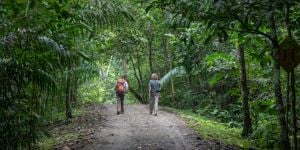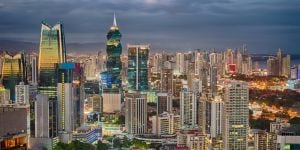
Panama offers various childcare options, including nannies, daycare centers and preschools. Expat families mostly rely on the private bilingual care available in the country. Many international schools include preschool programs, providing continuity from early education through secondary school. This guide explores the country's childcare services and their costs.
Formal and informal childcare in Panama
Childcare services in Panama fall into two categories: formal and informal care. Formal care includes daycare centers, preschools and early education programs. Family members and nannies provide informal care.
Preschool education in Panama
The country offers both public and private preschool education. While public centers are funded by the government and are either free or require a nominal fee, private institutions charge tuition. Most expats rely solely on private schooling, often not considering the public one an option. Wealthy Panamanian families do not trust the public education system either.
Preschool in Panama serves children from 1.5 to 6 years old. Some prominent international schools integrate preschool, primary and secondary education into their program.
Preschool entry requirements
The following documents are necessary for a child to attend preschool in Panama:
- Two passport-size photos;
- The child's birth certificate (authenticated for foreigners);
- The child's health certificate and record;
- The child's vaccination card;
- Parents' ID.
The mandatory vaccines typically include:
- Polio;
- Diphtheria;
- Tetanus;
- Pertussis (Whooping Cough);
- Measles, Mumps and Rubella (MMR).
Nursery or daycare in Panama
Children aged 1.5 to 3 years old attend nurseries or daycare facilities, which combine early education with basic care, allowing parents to leave their children in a safe environment while they work. Many daycare centers in Panama are bilingual.
International schools in Panama
The country's compulsory education (primary school) begins at age six. As mentioned above, many international schools also have preschool programs and accept children as young as two. These academic institutions offer bilingual instruction in Spanish and English. In addition to centers focused on the British and American systems, the country also has German and French schools.
The most popular international schools in Panama are:
- King's College;
- International School of Panama;
- Metropolitan School of Panama;
- Balboa Academy;
- The Oxford School;
- Oxford International School;
- German Isthmus College;
- French International School.
Costs of childcare in Panama
Childcare costs in Panama vary depending on the type of service, location and the school's prestige. Daycare centers and preschools in Panama City, especially those with international curricula, tend to be more expensive than those in smaller towns or rural areas. International education centers can also be found in some provincial towns, such as Coronado, Pedasí and Bocas del Toro.
Daycare centers in Panama may charge between US$200 and US$600 per month. International preschool programs range from US$500 to US$1,000 per month.
Most schools charge a one-time admission fee, which varies depending on the school. Current international school entry fees range from US$1,000 to US$16,000.
Private nannies in Panama City
When a child is small, hiring a nanny or babysitter may be the most suitable childcare option for expat families. In Panama, bilingual nannies or those experienced in working with children are common, some coming from neighboring countries. Most families prefer hiring these professionals through word-of-mouth to ensure they are trustworthy and reliable. Nanny agencies also operate here.
Nanny services are affordable in Panama compared to many other parts of the world. A nanny's monthly salary is around $400-$800. Rates depend on qualifications and work hours. Many families opt for live-in nannies, who may also cook and clean the house, depending on the agreement with the employer.
A night nurse trained in newborn care who assists parents during the first weeks of a baby's life may cost around US$1,500 per month.
Takeaway
Understanding local childcare options is essential if you plan to live in Panama with your children. You can choose from nannies, bilingual daycares and preschools. While public education is available, most expats choose private institutions with high international standards. The cost of childcare varies based on the type of services, location and institution. Hiring a nanny is affordable in this country, but private schools and preschools can be expensive.
Useful links:
Panama's Ministry of Education
We do our best to provide accurate and up to date information. However, if you have noticed any inaccuracies in this article, please let us know in the comments section below.












Comments